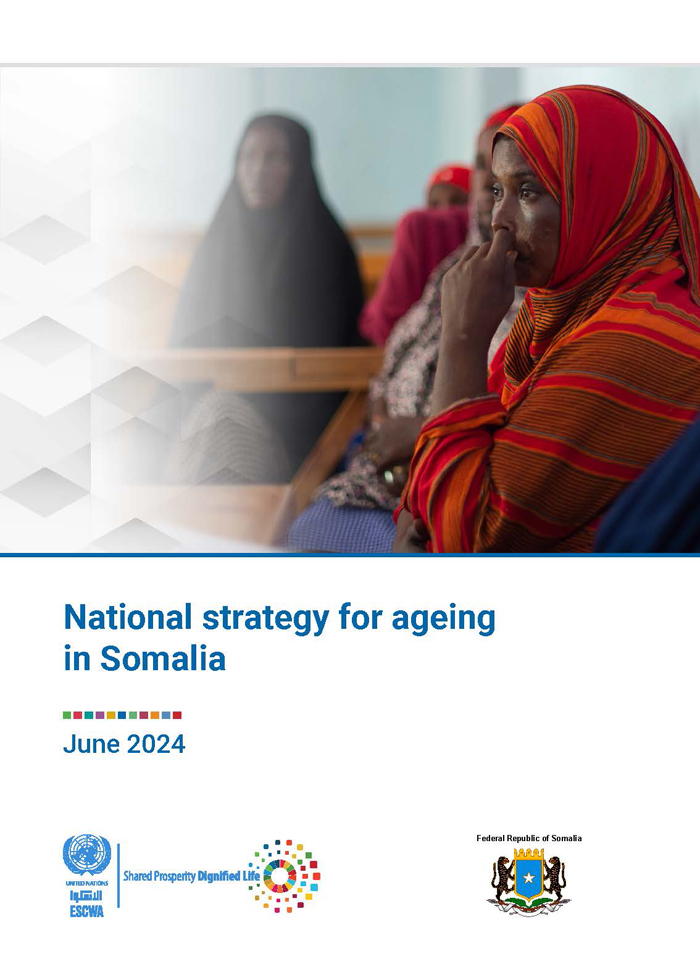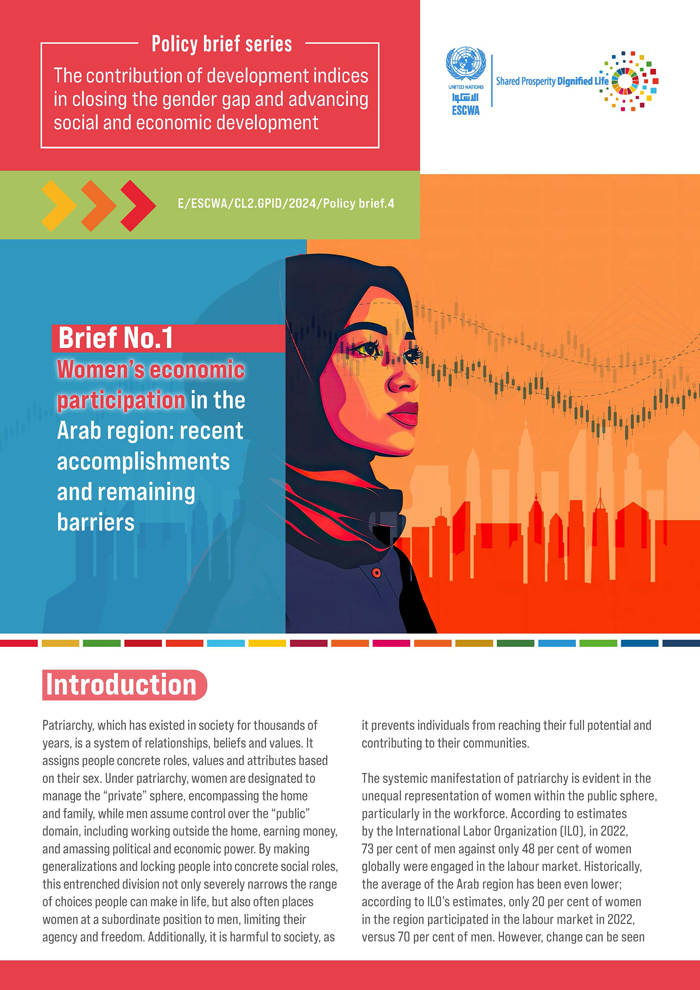
ESCWA Publication: E/ESCWA/CL2.GPID/2024/TC.8
Country: Hashemite Kingdom of Jordan
Publication Type: Information material
Cluster: Gender Justice, Population and Inclusive Development
Focus Area: Gender equality, Inclusive development, Population dynamics & migration
Initiatives: Older persons, Gender Justice and the Law, Promoting social justice, Reducing inequalities
SDGs: Goal 3: Good Health and Well-Being, Goal 5: Gender Equality, Goal 10: Reduced Inequalities
Keywords: Adult education, Ageing persons, Care of ageing persons, Empowerment, Gender equality, Government policy, Health care delivery, Jordan, Labour market, Legal aspects, Non-governmental organizations, Nursing homes, Policy making, Political participation, Productive ageing, Public institutions, Public transport, Social justice, Social media, Domestic violence, Social security, Training programmes, Technical cooperation, Urban planning
Jordanian National Strategy on Older Persons 2025–2030
November 2024
Jordan, like other Arab countries, is witnessing a rapid demographic change represented by an ageing population. This change provides demographic and development opportunities, but it also poses significant challenges in meeting the needs of older persons, and in establishing a legislative, legal, social, economic and built environment that is appropriate and safe for their increasing numbers. In view of these changes, the National Council for Family Affairs of Jordan, in collaboration with members of the National Committee for Monitoring the Implementation of the Strategy on Older Persons and partners from various national and international institutions, and with the support of the United Nations Economic and Social Commission for Western Asia (ESCWA), developed the Jordanian National Strategy on Older Persons 2025–2030.
The strategy was prepared pursuant to related international treaties and conventions to which Jordan is a signatory, and in continuation of the Government's efforts to provide a decent life for older persons, guaranteeing their right to live with dignity and in a supportive environment, free from violence in all its forms, while meeting their health, social and developmental requirements, and allowing them to achieve their aspirations and benefit Jordanian society through their competencies and experiences. The updated strategy includes the objectives and procedures required to work on eight priority areas for older persons, namely social protection and financial security; health care; social care; participation and solidarity between generations; prevention of violence, abuse and neglect; a supportive enabling environment; a knowledge base; and coordination and partnerships.
Related content
Gender equality
, Inclusive development
, Population dynamics & migration
,
Jordan, like other Arab countries, is witnessing a rapid demographic change represented by an ageing population. This change provides demographic and development opportunities, but it also poses significant challenges in meeting the needs of older persons, and in establishing a legislative, legal, social, economic and built environment that is appropriate and safe for their increasing numbers. In view of these changes, the National Council for Family Affairs of Jordan, in collaboration with members of the National Committee for Monitoring the Implementation of the Strategy on Older Persons and partners from various national and international institutions, and with the support of the United Nations Economic and Social Commission for Western Asia (ESCWA), developed the Jordanian National Strategy on Older Persons 2025–2030.
The strategy was prepared pursuant to related international treaties and conventions to which Jordan is a signatory, and in continuation of the Government's efforts to provide a decent life for older persons, guaranteeing their right to live with dignity and in a supportive environment, free from violence in all its forms, while meeting their health, social and developmental requirements, and allowing them to achieve their aspirations and benefit Jordanian society through their competencies and experiences. The updated strategy includes the objectives and procedures required to work on eight priority areas for older persons, namely social protection and financial security; health care; social care; participation and solidarity between generations; prevention of violence, abuse and neglect; a supportive enabling environment; a knowledge base; and coordination and partnerships.



